Perception or to perceive something means to be able to observe something through our senses. Our brain’s ability to detect and identify things is a complicates process. Our brain learns to associate meaning to objects through our interaction with them, with the help of previously acquired conceptual knowledge.
You can View More Tricky Images at: Best Life Hacks and Tips
Cognitive and neuroscientists for the longest times have been researching upon the rules by which our brain creates meaning out of the data collected from our sensory inputs. Here is a diagram explaining the basic process:
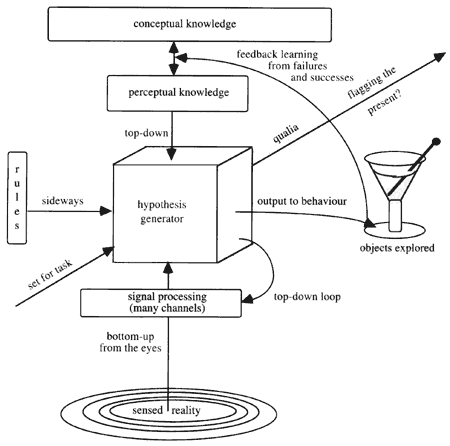
Image credits: Richard Gregory
Let us take a look at some tricky photos and see what they reveal about the way we as humans perceive and interpret visual cues:
1. Hidden Figures of Tricky Pictures
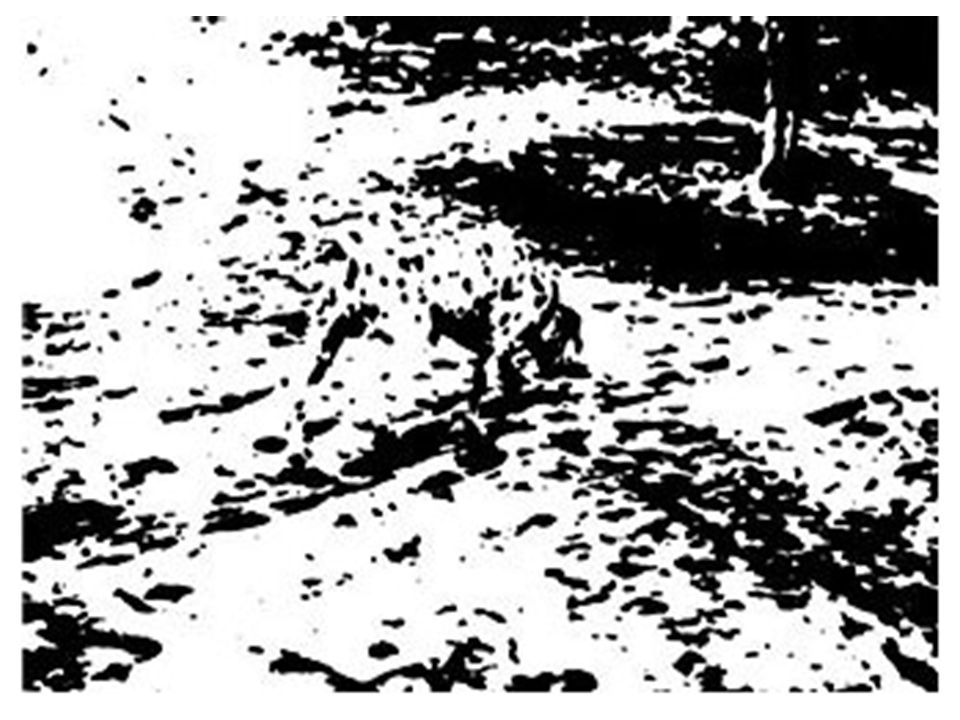
Image credits: Michael Bach
Now, take a close at the image above. If you are looking at this image for the first time it is likely that it does not make much sense to you at first glance. Your eyes will just scan around the black patches on white background. After a few seconds subconsciously your brain is trying to match the patterns to an image you are already familiar with. When it has successfully made the match, the image of a Dalmatian dog approaching a tree ‘pops’ at you in a one-shot learning. Once you have seen the image, you cannot unsee it again. This is just of one of the examples demonstrating our brain’s ability to organize a visual input into a decipherable pattern.
Also Checkout: Ways to Become a Millionaire
2. Shifting Perspectives
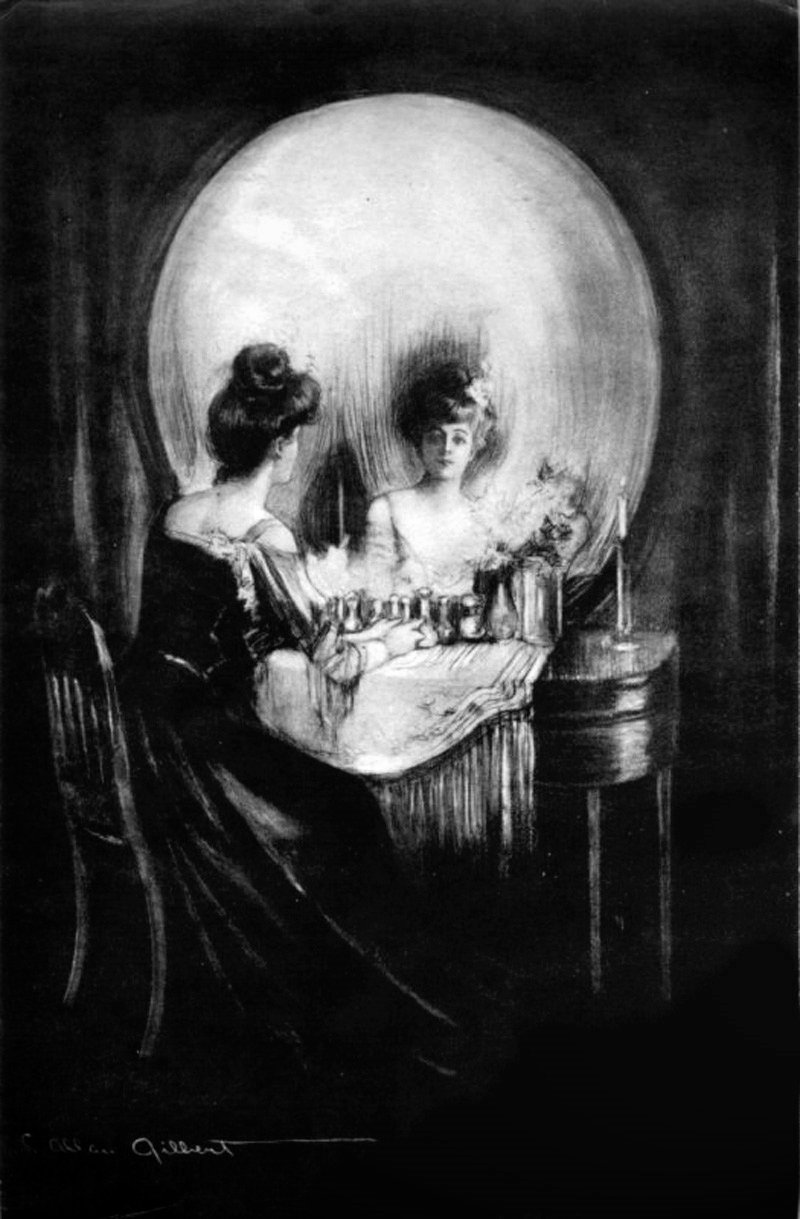
Above is the tricky pictures of the drawing called ‘All is vanity’ made by Charles Allan Gilbert in 1892. The piece of art displays a double image or a visual pun of a woman looking at herself in the mirror, which when seen from a distance also appears to be a human skull. This is a great way to demonstrate our minds ability to view two different perspectives or dual images. You may notice how your brain shifts from one image to another or the same image from a different angle and how your perception flips back and forth the two perspectives. It is interesting to note how you cannot see them both simultaneously but only one of the perspectives at one time.
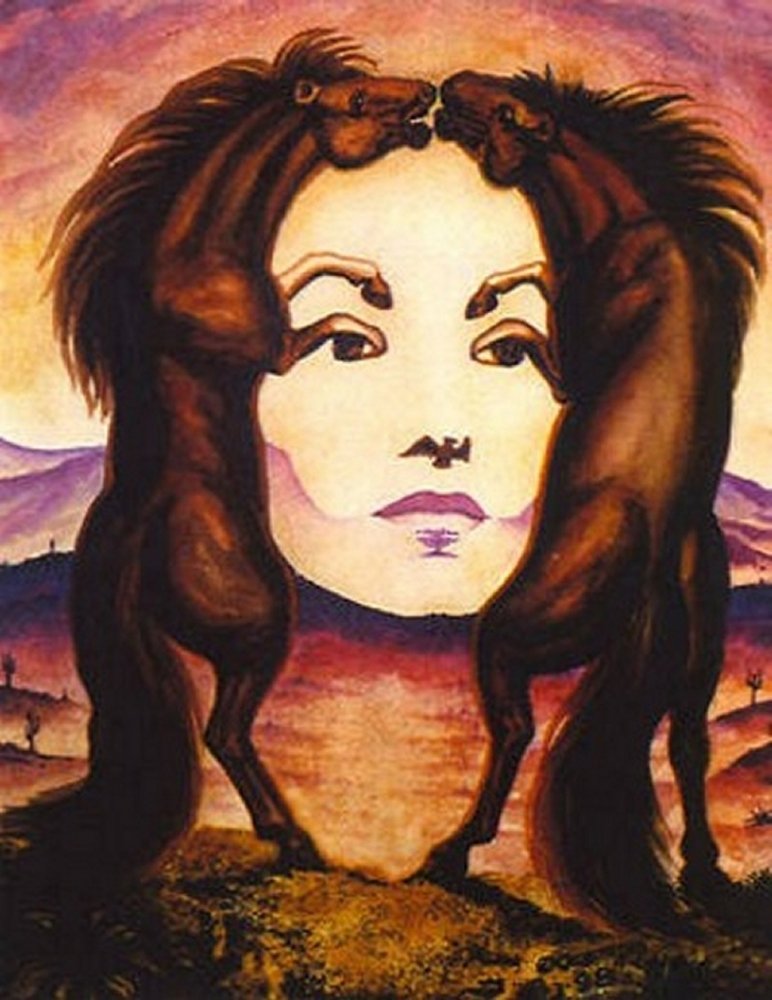
Another example of this phenomenon can be seen in the tricky pictures above where you will find your brain alternatively viewing two images. One of two horses and one of a woman’s face between the mountains.
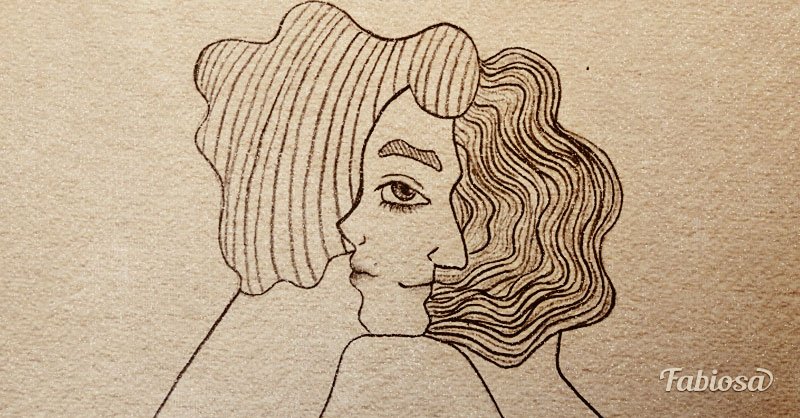
Image credits: Fabiosa
Similarly in this optic illusion your gaze shifts between the image of a man and a woman, however, with less clarity.
3. Illusory Motion From Dark to Light Along Luminance Gradient
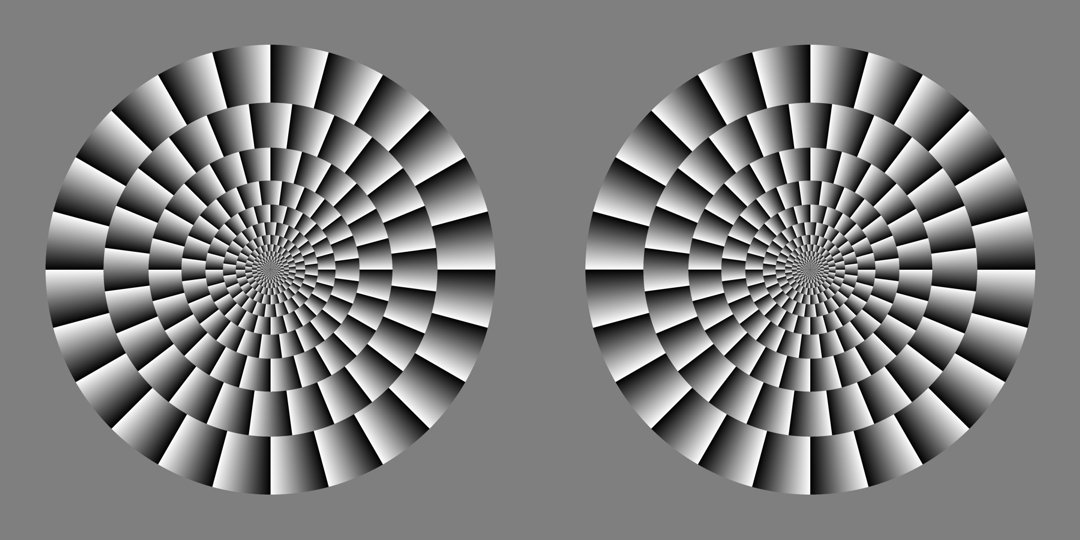
Image credits: Akiyoshi Kitaoka
The left rings appear to rotate clockwise whereas the right ones counterclockwise.
View More: Good Skills to Have
4. Illusory Motion From Light to Dark Along Luminance Gradient
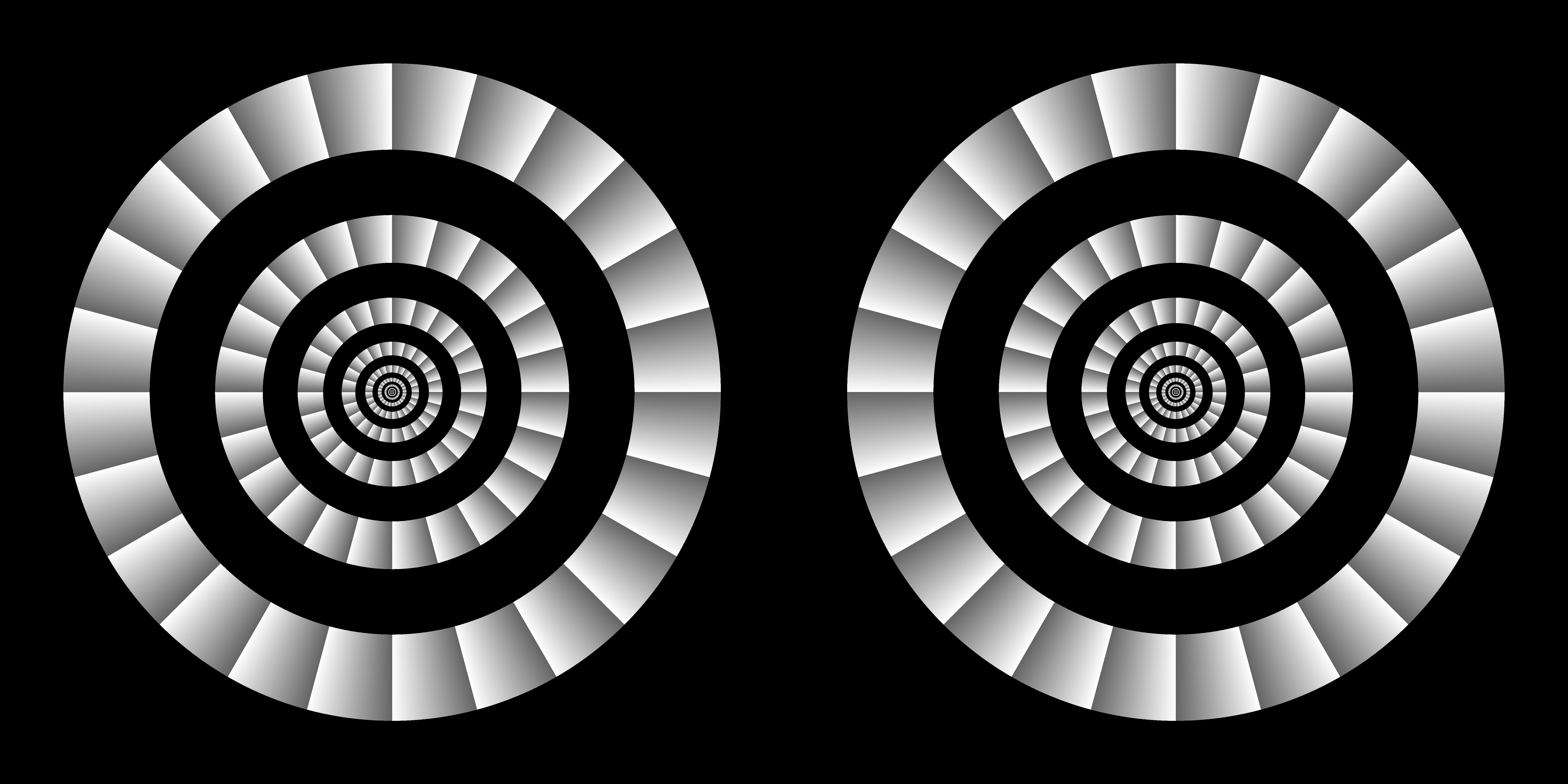
Image credits: Akiyoshi Kitaoka
The left rings appear to be rotating counterclockwise whereas, the right ones appear to be rotating clockwise.
4. Illusory Motion From Dark to Light and From Light to Dark
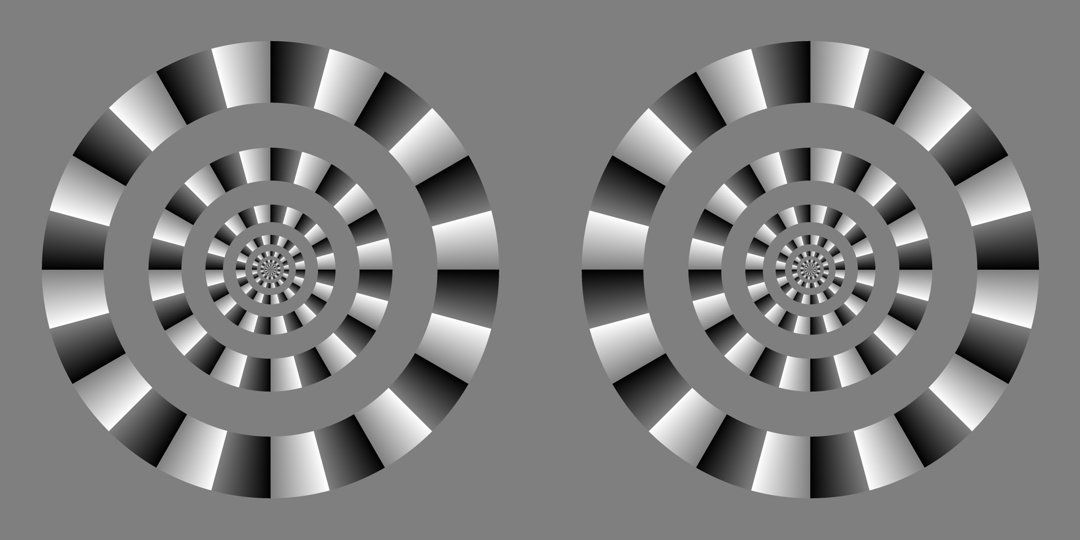
Image credits: Akiyoshi Kitaoka
The left rings appear to be rotating clockwise while the right ones seem to be rotating counterclockwise.
5. Illusory Motion From Dark to Light or From Light to Dark
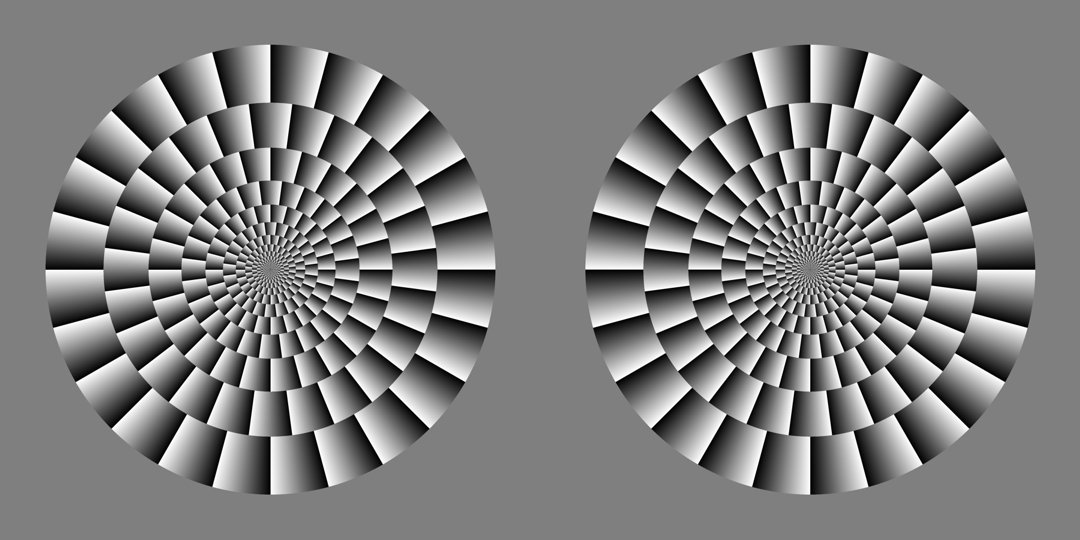
Image credits: Akiyoshi Kitaoka
This is an interesting example as for some people the left rings appear to rotate clockwise while the right ones counterclockwise. However, to other people, the left rings appear to rotate counterclockwise while the right ones seem to be rotating clockwise, depending on the perception of their mind as an individual.
From these illusory illustrations, we can understand our brain’s ability to perceive size and motion and how it involves context and contrast. This provides a deeper understanding of how when you’re going about your day your brain is constantly translating all the visual sensory data it is receiving into information we can understand through hidden rules involving perception and conceptual knowledge.
Article by Born Realist
Liked this? Read this: 25 Unusual Pictures You’ll Have To Look At Twice to Understand






